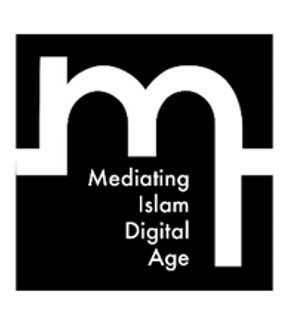
The Marie Skłodowska-Curie Innovative Training Network (ITN) proposal ‘Mediating Islam in the Digital Age’ (MIDA) has been awarded a research grant from the Department for Research and Innovation of the European Commission. MIDA comprises an international consortium of prestigious research institutes, universities and non-academic partners—including the University of Granada—in six European countries and is coordinated by the French National Center for Scientific Research (CNRS) in Paris.
Innovative Training Network programmes are designed to combine scientific research with an intensive training trajectory for young scholars in order to equip them with comprehensive knowledge and skills. These researchers work in an inter-sectoral, interdisciplinary and international environment to deepen their knowledge and to find answers to pressing contemporary societal issues.
The MIDA project rests on the premise that digitisation and technological innovations have a tremendous impact on Islam, the effects of which are diverse and ubiquitous. They include first and foremost modes of expression and communication of religious messages and traditions, and modes of engagement with society. Digitisation and concurrent innovations as they emerged in the past decades belong to the list of comparable fundamental technological transformations in human history such as the invention of paper, printing technology, steam power, electricity and telecommunication, which constituted major upheavals, even if these were not experienced in all societies and by everyone at the same time, in the same way.
It is commonly acknowledged that the digital revolution will indeed deeply transform human societies, much as the industrial revolution did in the nineteenth century. However, the rapid changes that are currently taking place generate a sense of loss of control and instability among the general public, politicians, journalists, academics, and, not least, among Muslims themselves. The spread of modern digital media and new technologies of communication, production and dissemination, prompts researchers and social actors, Muslims and non-Muslims alike, to make sense of, and to understand these developments. Consequently, they have shaken up Islam as a field of academic study and have impacted on the ways Islam is to be studied in the future. The specificity of the current digital revolution calls for a re-evaluation of past situations and reflection on future prospects.
MIDA assesses these developments in all their dimensions by formulating three major questions: How does digitisation (1) shape Islam (i.e. beliefs, practices, societies, political organizations, social institutions, and outlooks); (2) modify the relation Muslims have with their past; (3) modify and reorganise scholarship and research on Islam?
MIDA takes Islam as a broad field, not confined to theological dimensions as such. The study of Islam implies the study of mediating practices and concomitant social, political and cultural implications in the past and present and consists of three interlocking dimensions. The first concerns texts, doctrines, material culture, and rituals as means to bridge the distance between the individual and the divine and to generate religious experience and reflection. The second dimension concerns the social, cultural, visual and institutional environments and settings in which mediation takes place, and the actors that are involved. The third dimension concerns social and political institutions and power relations in which mediation is embedded. An overall aim of the project is to understand how digitisation instigates renewed attention for the impact of similar processes in the past.
Twelve beneficiaries and thirteen partner organisations are part of the MIDA consortium, including three CSIC institutes — the Institute of Mediterranean and Near Eastern Languages and Cultures (ILC), the Milá y Fontanals Institution (IMF), and the School of Arabic Studies (EEA) in Granada. Partner organisations in Spain include “Casa Árabe”, the Autonomous University of Madrid, the University of Barcelona, and the University of Granada.
For further information, please contact:
Adela Fábregas García
Department of Medieval History and Historiographic Sciences and Techniques (UGR)
fabregas@ugr.es
Maribel Fierro (ILC)
Araceli González (IMF)
Mayte Penelas (EEA)